Unveiling the Impactful Advantages of App-Based Healthcare
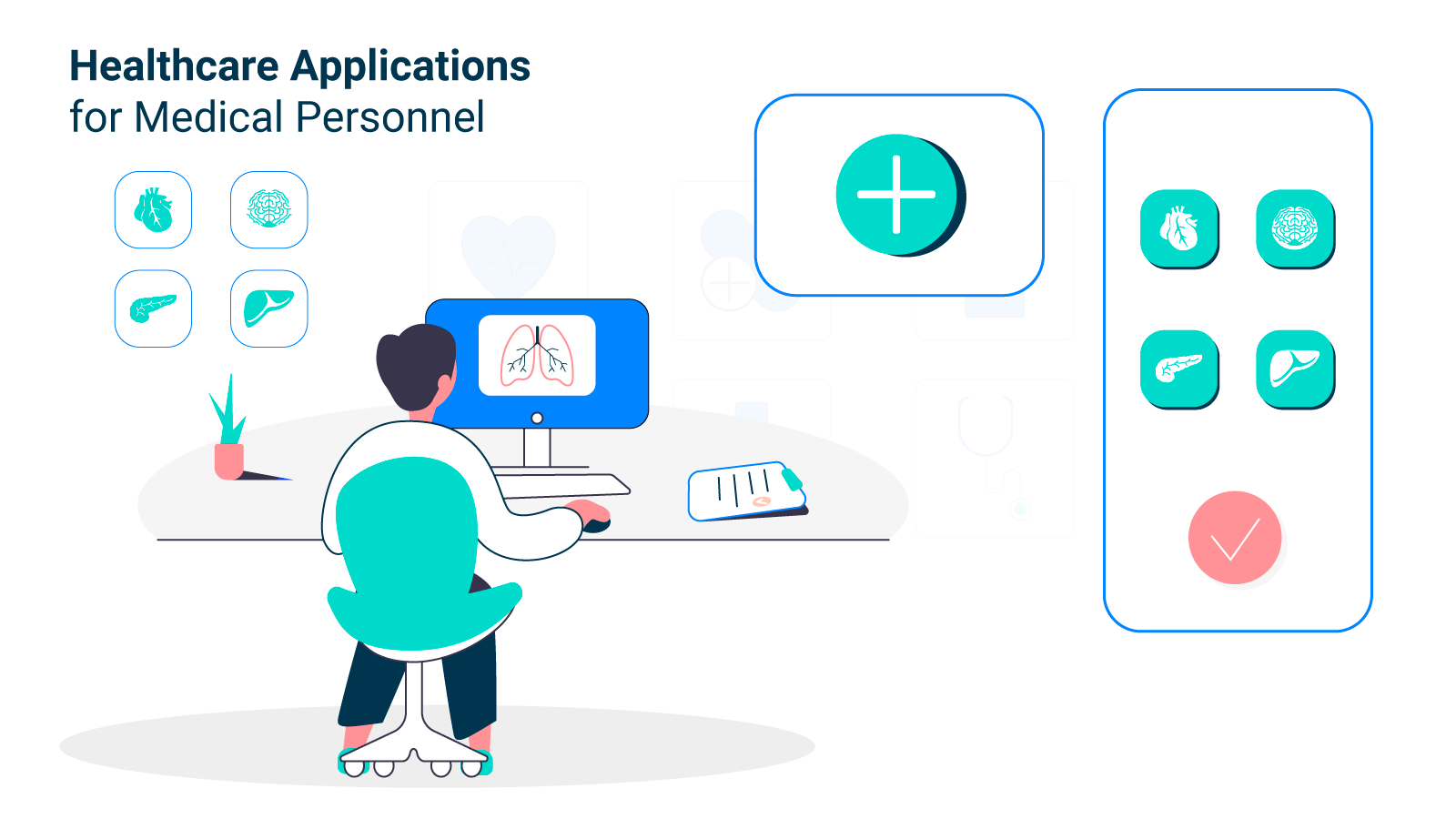
The days when patients were bound to wait in long queues in the hospital are gone. Today, with the rapid expansion of digital technologies, the traditional way of life has started changing. So did the healthcare system. Before the pandemic, mobile healthcare was already a growing industry with great potential. The pandemic proved, digital is our future, especially when it comes to on-demand services and healthcare. This is one of the most spectacular rearrangements happening in healthcare– adding to its leading roles are app-based medical services. In our digital era, the importance of these apps cannot be underestimated. App-based healthcare began by offering convenient services to remote regions of Africa, and as we investigate the many advantages they offer let’s first consider some impressive statistics that reveal how powerful app-driven medical care can be on a worldwide level.
Statistics Infusion:
- Global Health App Market Boom: Prepare yourselves for the figures – forecasts estimate that by 2028, global market of healthcare apps will skyrocket to an unbelievable US$25.40bn. These facts not only reveal the fast boom of this industry but also point out that a significant part is played by these mobile applications to determine what healthcare will be like in future.
- User Adoption: 80% of smartphone users have a health app on at least one screen. We are talking about not only a niche industry, but rather the global phenomenon that demonstrates how widely healthcare applications are integrated into our everyday lives.
- The Telehealth Boom: Post-pandemic findings are out, and the trend of remote consultations dominates. 2020 saw a stunning 20% increase in the use of telehealth services, reflecting an ongoing change on how we look for and get medical advice.
- Patient Engagement Redefined: It’s not only about figures; it is about the effect. 60% of users that actively reach out to health apps indicate real improvements in health conditions and commit more steadily towards their treatment regimens. Engaging patients like never before.
- Physicians Embrace the Digital Wave: The healthcare professionals are also surfing the digital wave away from public view. Nowadays, almost 70% of physicians are now incorporating health apps into their daily routine without any extra hiccups; this indicates that healthcare delivery and management has fundamentally changed.
These statistics act like our compass that helps us navigate through the astounding journey of app-based healthcare services. As we open up the benefits layers, these numbers reflect that a digital revolution has been redefining healthcare facets all across the globe.
Productivity maximization with healthcare automation
Digitalisation and the inclusion of medical applications within the healthcare industry give many advantages for the providers, patients, and the entire population.
Removed Geographical Borders and Global Health Improvement
Alanna Shaik, a global health specialist, states that the COVID-19 is not the last epidemic, and we will see more cases soon. It is more hospitable to new viruses, bacteria, and new diseases in combination with climate change. The real solution lies in building a global healthcare system to support core healthcare functions and not embedding harsh quarantines or regulations.
The segment, valued at billions of dollars, has an invaluable role in our lives, providing fast consulting, drug prescription, and treatment. What else can we benefit from app-based healthcare services? Let’s get deeper into the topic and understand the advantages of the technology.
In the changing horizon of healthcare technology, it is important for business owners to develop solid monetization strategies and efficient business models. This can not only produce good income, but also it means better services for the customers who want to get high-class health care solutions.
Customer Perspective of Healthcare Apps
The industry overall is user-centric. It means the application is created to satisfy the needs of the user. From the first stage of business planning and app development, the customer is the key; everything is done from a customer perspective.
For the industry, customers are both patients and physicians. The benefits of mHealth are working for both audiences creating two-way values.
Which Areas are Used for Medical Business Automation?
Thus, medical business automation and software development can be utilized and scaled up within most areas and across country borders. This removes medication and medical equipment deficits, offers training platforms for healthcare providers on treatments and infection control, allows having a unified scientific basis and set protocols, and so on.
Also, digital solutions can address issues of a particular group of people with similar needs and reach for consultation with top medical professionals at a distance. In short, we can point out 5 key advantages driven by mHealth automation.
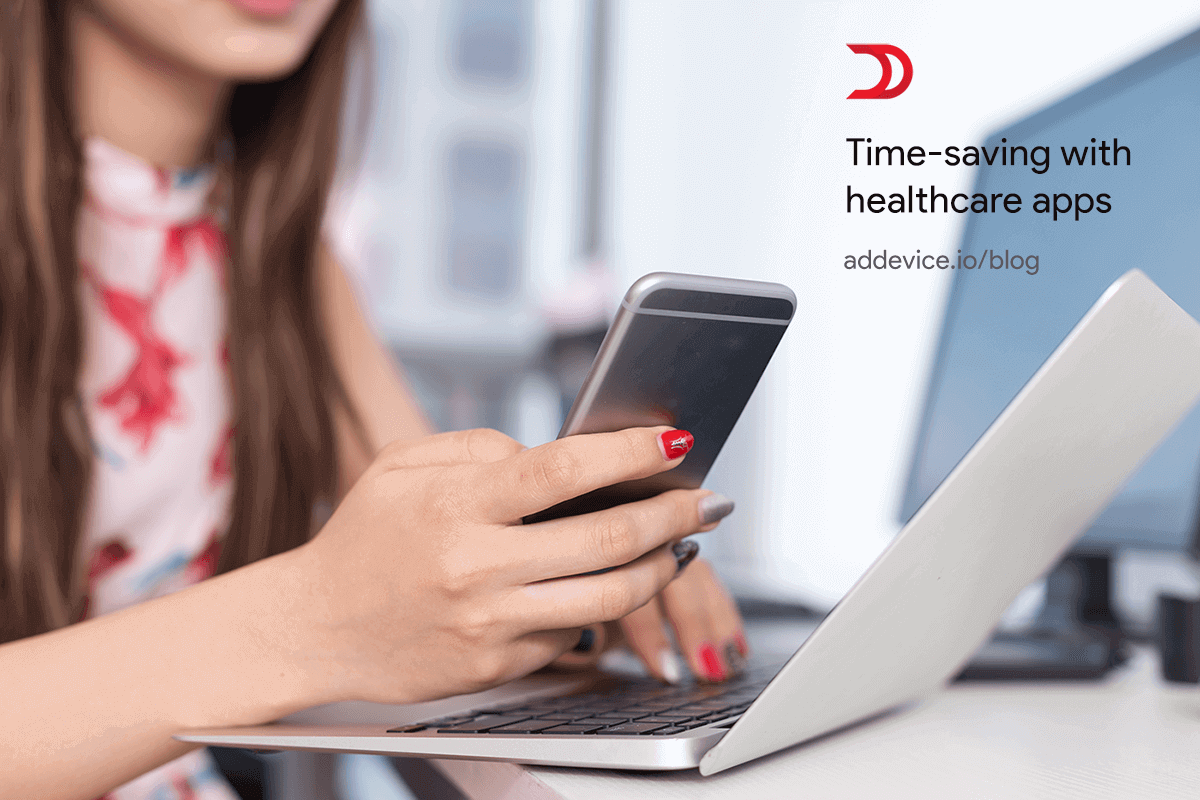
Automated Managing and Scheduling Appointments
The automation accelerates the management of software services reducing data errors, cutting on paperwork, and assisting medical staff in navigating multiple platforms.
Appointment scheduling automation is now working in two ways helping patients to set an appointment with one click. Behind the scenes, medical institutions can now efficiently process patient data with automated systems. This cycle helps both patients and healthcare institutions focus on more important tasks rather than setting an appointment.
Automated Account Settlements and Insurance Pre-Authorization
Each patient has its unique “account” with diagnosis, treatment data, personal information, bills, etc. The data registration and processing are traditionally manual with the risks of human error. The automation through AI and ML technologies eliminated inaccuracies with data registration and updates, bill calculation, and account settlements.
The exact automation mechanism with AI works for insurance pre-authorization, where the automation system can complete pre-authorization through any insurance portal within minutes.
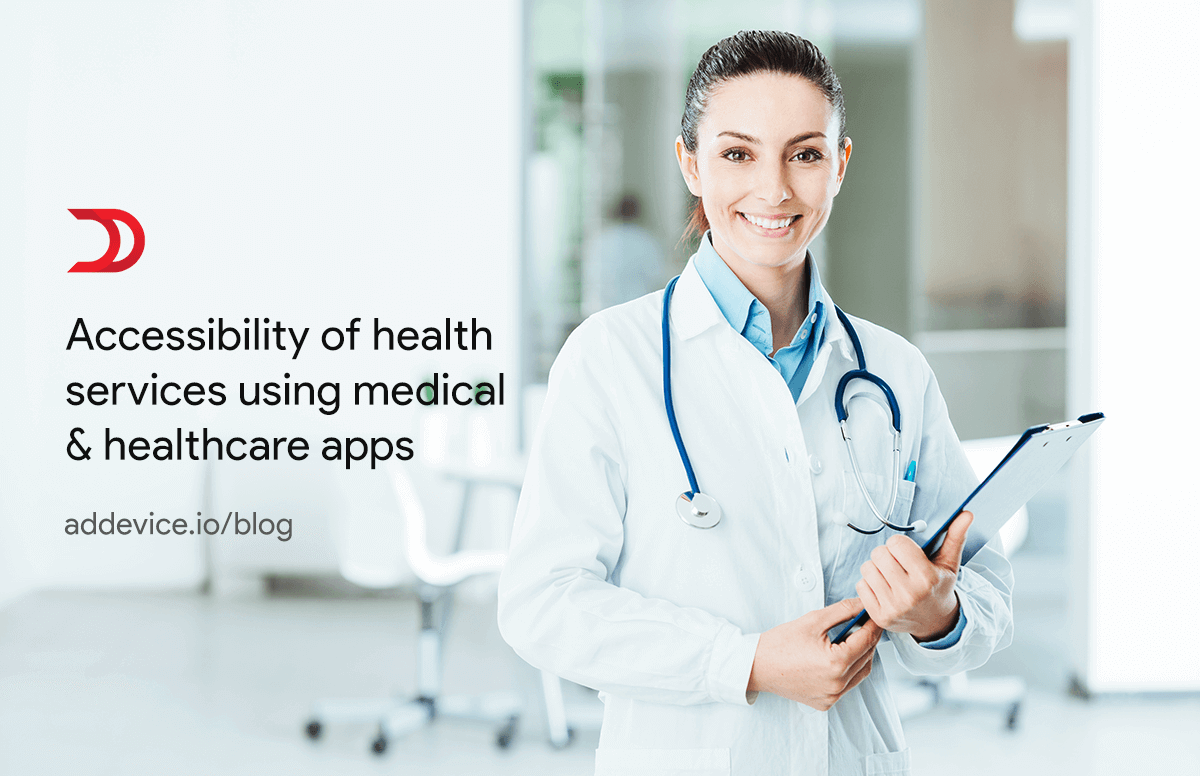
Automated Insurance Claims Management
The automated pre-authorization and claims management is a massive step in the service cutting on hours of paperwork like data input, processing, evaluation, and appeals. The entire process is now available at one click.
Automated Audit Procedures’ Recording
Manual audit required tons of paperwork for collecting, verifying, and reporting, though the accuracy of reports proved to be critical. The automation clears human errors and monitors compliance more accurately.
Improving the Healthcare Cycle and Workflows
With automated data storage, patient registration, and critical data analysis, the healthcare system can now work with less workload and more time on delivering better care.
What are the Benefits of App-Based Healthcare Services?
So the biggest question is still here; how can we benefit from health apps, and how they will change our lives. There are the top benefits to consider
Enhanced Workflow by Cutting on Time-Consuming Processes
The automation of mobile technologies introduced a whole new culture of processing patient data. Paperwork is now replaced with digital records stored and accessed easily anytime and anywhere. Electronic healthcare record (EHR) software allows accessing, evaluating, and sharing patient data and the whole medical history to take the necessary course of action in therapy and medication way faster.
Aside from cutting on paperwork, healthcare providers and doctors can monitor their patients and collect health vitals remotely through mobile apps. They can also observe any deviation in the care plan, take the necessary actions on time, and prevent worsening the situation.
Accessibility & Automation of Healthcare Services
It was recently discovered in research conducted by the NRHA that there are lack of medical personnel more than ever before. For this reason, innovative solutions should be sought to address a shortage of such individuals working at hospitals and similar facilities.
Additionally, medical establishments may develop interactive patient portals where the users can access all up-to-date information and stay in touch with their therapist 24/7.
The interaction with the hospital via an app is getting smarter supporting industry growth, reducing fees for patients, and unburden the healthcare system. By automating the bills, insurance authorization, and claims, the system cuts costs on human labour yet has resources to optimize medical services overall.
Cost-Effectiveness and Convenience
Removed paper works, automation of processes, online calendars, and planners will increase the cost-effectiveness of healthcare services. Moreover, medical business automation can help redirect budgets and human resources to R&D, search for a cancer cure, or similar.
Being patient-centric, mHealth aims to be maximum available and close to patients. Taking healthcare to patients’ houses, medical institutions have higher chances to change the statistics of fatal outcomes. The digitization helps patients schedule appointments, take consulting’s and prescriptions, get treatment for non-critical problems, etc.
New Business Models
As the healthcare sector goes through major changes, a great territory for business development begins to form. This dynamic environment provides unparalleled opportunities for entrepreneurs and businesses to prosper in the emerging healthcare landscape.
The monetization model can be different referral programs, rating systems, ads, discounts, and cooperation with medical institutions providing strong brand recognition through the mobile app.
Increased Efficiency in the Healthcare Industry
Digital mobile healthcare services minimize the number of human errors and speed up the processes. Electronic access to unified medical records, lab results, scans of the patient data makes it easier to diagnose and monitor chronic conditions. Healthcare software development allows for more effective treatments as well as precise follow-ups on the care plan.
As for the patients, the mobile platforms can manage their calendars with various doctors, set the necessary health-related reminders, keep their medical records in one place, and so on.
How are We Involved in the Healthcare Industry?
With years of relevant experience in mobile healthcare, Addevice company has managed to have its contribution in automating health services and bringing healthcare to patients. Alertive Healthcare remote patient monitoring service now has an application that fully supports the purposes and functions of the service, i.e., monitoring patients 24 hours, tracking data, and alerting physicians.
Understanding the needs of patients and the bottlenecks of medical institutions, we create technology solutions that address the pain points.
Mobile Technology in the Healthcare Industry, healthcare in mobile, medical mobile apps, apps for clinics, Healthcare Applications, Medical Personnel, Wearable Apps, Native Apps, Translation App Development
Develop Your Mobile Health App
Transform healthcare experiences with your own mobile health app
Our Expertise Covers:
✅ Telemedicine and virtual consultations
✅ Electronic health records integration
✅ Medication tracking and health monitoring features
Table of contents
FAQ
The benefits of app-based mobile services address patients, physicians, and medical service provides, increasing the productivity and the quality of services. The top benefits of mHealth are as follows:
- Enhanced workflow by cutting on time-consuming processes
- Accessibility & automation of healthcare services
- Cost-effectiveness and convenience
- New business models
- Increased efficiency in the healthcare industry
As for the patients, the mobile platforms can manage their calendars with doctors, set the necessary health-related reminders, keep their medical records in one place, and so on.
Monitoring patients 24 hours, tracking data and alerting physicians, automating patient registration, payments, and prescription, connecting patients with doctors, and supporting online treatment.
The Healthcare industry facing dramatic changes and transformation has opened up a broad space for business development. Despite complicated regulation and approval processes, mHealth is one of the top profitable segments to start.
Healthcare providers and doctors can monitor their patients and collect health vitals remotely through mobile apps. They can also observe any deviation in the care plan, take the necessary actions on time, and prevent worsening the situation.
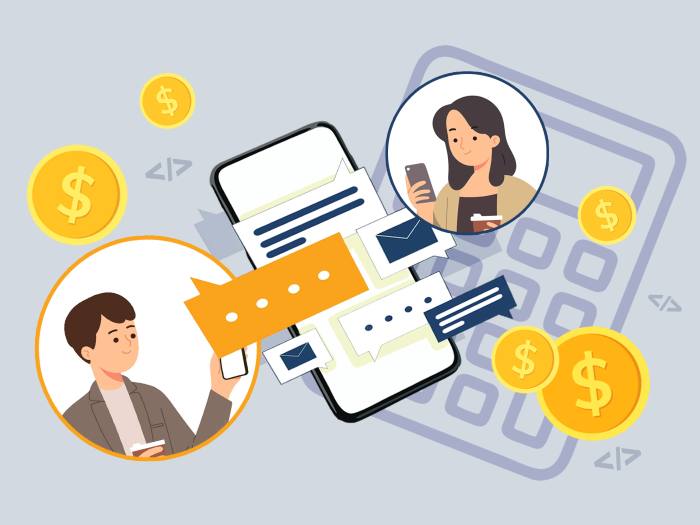 How Much Does It Cost to Build a Messaging App?
How Much Does It Cost to Build a Messaging App?
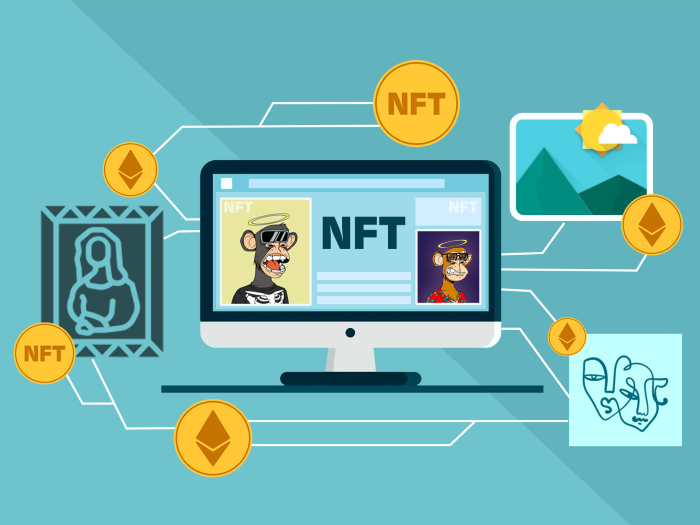 How to Create an NFT Marketplace: Development Guide
How to Create an NFT Marketplace: Development Guide
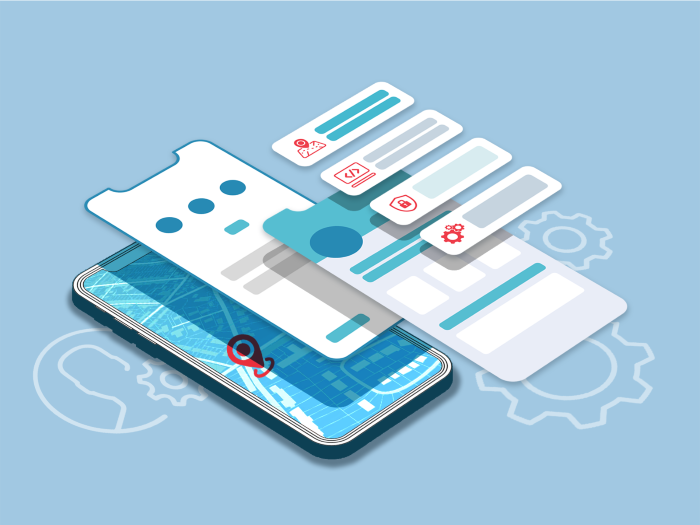 Must-Have Uber App Features: Building a Ridesharing App
Must-Have Uber App Features: Building a Ridesharing App